Our library staff members are attending courses on a new library cataloguing system. While visitors to the NINO library may not immediately see big differences, behind the scenes a lot is changing – making ever more connections and cross-connections throughout the world.

In the past, two types of catalogues have been used side by side to help our visitors find the publications they need for their research.
(1) The card catalogue – a type-written index card for every title in our library – has been used since our Institute and library were founded in 1939. In 2012 it was decided to stop updating the card catalogue; it was hardly used anymore in the present digital age.
(2) When digital library catalogues were introduced in the 1980’s, NINO followed suit. All index cards were diligently typed into the computer. The NINO library became an independent participant with its own subject and institute code in a number of Dutch library systems: the national PiCarta library system (the meta-catalogue maintained by PICA, now renamed OCLC), the GGC (Gemeenschappelijk Geautomatiseerd Catalogiseersysteem) and the NCC (Nederlandse Centrale Catalogus). Participation in these nation-wide systems made it possible for library users outside Leiden to check whether a specific title was available in the NINO library, without having to consult the card catalogue on the spot.
After more than 15 years, changes in the digital cataloguing system made it necessary to link the NINO library catalogue directly into the online catalogue of Leiden University Library. Since 2005 this large catalogue includes the holdings of several independent libraries in Leiden; items held by NINO are labelled with a separate signature. The system used was Aleph 500, provided by Ex Libris. The NINO library staff members, who have always done the cataloguing independently, attended training sessions in 2004-2005 to conform to University Library guidelines, ensuring uniformity in the – then newly developed – shared Aleph system. Linking the catalogues was realized with the intention to broaden the availability of our catalogue for users. NINO is an independent foundation with close ties with Leiden University. This includes close cooperation with the University Library, as is evidenced by the shared library system, the availability of LU digital library services on two user computers in our library, and regular contacts with colleagues in Leiden libraries concerning our acquisition policies. Through interlibrary contact we are able to limit the number of double copies of publications concerning our fields of interest; despite decreasing budgets we strive to make at least one hard copy of essential titles in our core fields available to library users in Leiden.
In Fall 2013 Leiden University Library migrated to the PRIMO system – essentially update 4 of the Aleph system. From then on the NINO catalogue was integrated in the LU catalogue under the heading “Leiden Collections” as an independent institution with a self-contained catalogue.
The next innovatory data migration will be implemented July 2016 by the transition to the integrated ALMA library system (again provided by Ex Libris). This update implies a totally new way of cataloguing in the future by using Worldcat. Worldcat, the largest meta-catalogue in the world – combining the collections of the collections of 72,000 libraries in 170 countries – employs Library of Congress classification codes. These are different from the thematic codes that the NINO library has developed and used over many years and that are specifically suited to our specialized collections. We will continue using our own classification when shelving books in our library, so they will remain easy to be found by our users. Because of the transition to ALMA and Worldcat, all cataloguing staff of the University Library and affiliated institutions, amongst them NINO, need to be trained in the new system and methods. The training period consists of eight different courses from April until July which take several consecutive days: four days of training for MARC 21 (Machine-Readable Cataloguing) and RDA (Resource Description & Access) cataloguing systems; a two-day training for the new ALMA system, beside a general ALMA training for subjects like ALMA terminology, searching in ALMA, its help function etc. The NINO library staff members will attend these courses in the coming months to be able to provide custom-made catalogued titles also in the future for our users.
